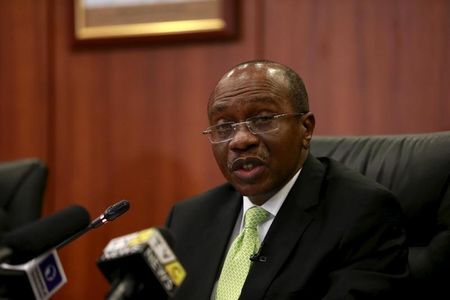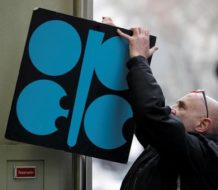ABUJA (Reuters) – Nigerian central bank Governor Godwin Emefiele ruled out on Thursday a naira devaluation and told people not to panic about the government shifting its bank accounts to the central bank, a move that would drain billions of dollars from the financial system.
In an interview with Reuters, Emefiele said he was ready to inject liquidity if needed into the interbank market, which dried up this week following a directive to government departments to move their accounts into a “Treasury Single Account” at the central bank.
The policy is part of new President Muhammadu Buhari’s drive to fight corruption, but analysts say it could suck up as much as 10 percent of banking sector deposits in Africa’s biggest economy – hammering banks’ liquidity ratios.
Amid confusion over implementation of the policy, overnight interbank lending rates spiked to 200 percent this week, but Emefiele denied the policy had provoked a liquidity crisis.
“There is no shortage of liquidity,” he said, pointing to an oversubscribed sale of treasury bills on Wednesday. “A spike is a momentary action. It’s sentiment,” he said.
Emefiele said less than one trillion naira ($5 billion) would be moved into the single account but did not give details.
Emefiele was also emphatic about maintaining the naira currency – which has dived in the past year due to a collapse in oil revenues – at its current level of 197 to the dollar.
“There will not be a devaluation because right now the currency is appropriately priced,” he said.
In a series of unconventional interventions to protect the naira, the bank has blocked access to foreign currency to import items ranging from soap and toothpicks to cement and private jets.
Emefiele said the list of restricted items could be expanded to encourage local production.
He rejected claims by Nigerian firms about the difficulties of getting hold of dollars and ruled out the possibility of a default by any company with dollar-denominated debt.
(By Julia Payne and Ulf Laessing, Reuters)




